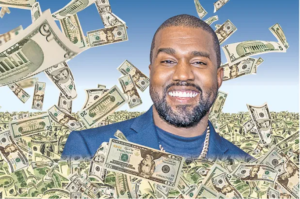From Letters of Note – “a reassuring reminder that 99.9% of people have at some point worried about, needed more of, and sometimes written awkward, angry, or amusing letters about, money.”
John O’Hara, letter to The New Yorker editor Harold Ross, 1939:
I want more money I want more money I want more money I want more money I want more money I want more money I want more money I want more money I want more money I want more money I want more money.
Edna St. Vincent Millay, letter to Poetry editor Harriet Monroe, March 1, 1918:
Spring is here – and I could be very happy, except that I am broke. Would you mind paying me now instead of on publication for those so stunning verses of mine which you have? I am become very, very thin, and have taken to smoking Virginia tobacco.
Wistfully yours,
Edna St. Vincent Millay
P.S. I am awfully broke. Would you mind paying me a lot?
Dylan Thomas, letter to Purpose editor Desmond Hawkins, October 22, 1936:
YOU PURPOSE PEAPOTS OWE ME A QUID FOR THOSE TWO POEMS. How are you? Try to remember to keep some lunch dates free for me when I come up to town in about a fortnight’s time. I’ve got some new poems and some new jokes and some new diseases, I’m feeling fine. A WHOLE POUND YOU PEAPOTS… MONEY, TINKLY MONEY, FOR GOD’S SAKE.
Robert Louis Stevenson (age 15), letter to his father, April 1866:
Respected Paternal Relative:
I write to make a request of the most moderate nature. Every year I have cost you an enormous – nay, elephantine – sum of money for drugs and physician’s fees, and the most expensive time of the twelve months was March.
But this year the biting Oriental blasts, the howling tempests, and the general ailments of the human race have been successfully braved by yours truly.
Does not this deserve remuneration?
I appeal to your charity, I appeal to your generosity, I appeal to your justice, I appeal to your accounts, I appeal, in fine, to your purse.
My sense of generosity forbids the receipt of more – my sense of justice forbids the receipt of less – than half a crown.
Greeting from, Sir, your most affectionate and needy son.
British Naval Officer, letter to a creditor, 19th century:
I am in receipt of your “Final Demand” for payment of my account. I have to inform you that my normal practice concerning the settlement of debts is to place all of my bills in a hat once a month, from which I draw out two or three for payment. I have followed this procedure with regard to your bill. However, if I receive another letter from you, Sir, the tone of which I consider to be rude, your bill will not be put in the hat at all.


